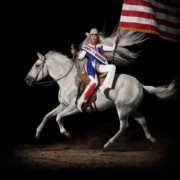Generation Black TV - Live
--- Main Blog Content Below ---
Fela Kuti: A Legendary Musical Icon

Fela Aníkúlápó Kuti who’s also known as Abami Eda, was born on 15 October, 1938. He was a Nigerian multi-instrumentalist, bandleader, composer, political activist, and Pan-Africanist. He is regarded as the pioneer of Afrobeat, an African music genre that combines West African music with American funk, highlife, and jazz. At the height of his popularity, he was being referred to as one of Africa’s most “challenging and charismatic music performers”.
He was described by AllMusic as a musical and sociopolitical voice of international significance.
In 1967, Kuti went to Ghana looking for a new musical direction. He called his style Afrobeat, a combination of highlife, funk, jazz, and traditional Yoruba music.
However, In 1969, Kuti took the band to the US and spent ten months in Los Angeles. While there, he discovered the Black Power movement through Sandra Smith (now known as Sandra Izsadore or Sandra Akanke Isidore), a partisan of the Black Panther Party. It was that experience which heavily influenced his music and political views. He went on to renamed the band Nigeria 70.
Soon after, the Immigration and Naturalization Service was tipped off by a promoter that Kuti and his band were in the US without work permits. The band performed a quick recording session in Los Angeles that would later be released as The ’69 Los Angeles Sessions.

Kuti’s musical style being called Afrobeat is a style he largely created. A complex fusion of traditional Nigerian, African chants and rhythms. It contains elements of psychedelic soul and has similarities to James Brown’s style of composition.
His band was notable for featuring two baritone saxophones, when most groups only used one. This is a common technique in African and African-influenced musical styles and can also be seen in hip hop.
Most often, he performs with two bassists at the same time both playing interlocking melodies and rhythms. There were always two or more guitarists. The electric West African style guitar in Afrobeat bands is a key part of the sound, and is used to give basic structure, playing a repeating melodic statement, riff, or groove.
Kuti’s songs are mostly sung in Nigerian pidgin English. Albeit, he also performed a few songs in his native Yoruba language.
In his interview with CGTN Africa, he spoke of comparison between English love songs and his own music, wherein he said;
“Yes, if you are in England, the music can be an instrument of enjoyment. You can sing about love, you can sing about whom you are going to bed next. But in my own environment, my society is underdeveloped because of an alien system on our people. So there is no music enjoyment. There is nothing like love. There is something like the struggle for people’s existence.”

Fela was quoted many times that “Music is the weapon. Music is the weapon of the future.”
As a fierce human rights and political activist, he had dedicated his life to fighting inequality, injustice, and cultural imperialism through his music. He was famously known for his criticism on military governments and corrupt politicians for keeping the Nigerian people oppressed and suppressed. His fearless outspokenness earned him multiple arrests and even a jail term.
It’s now over two decades since he died on August 2, 1997, at the age of 58. But to date, he’s still being remembered as a legendary musical icon.











